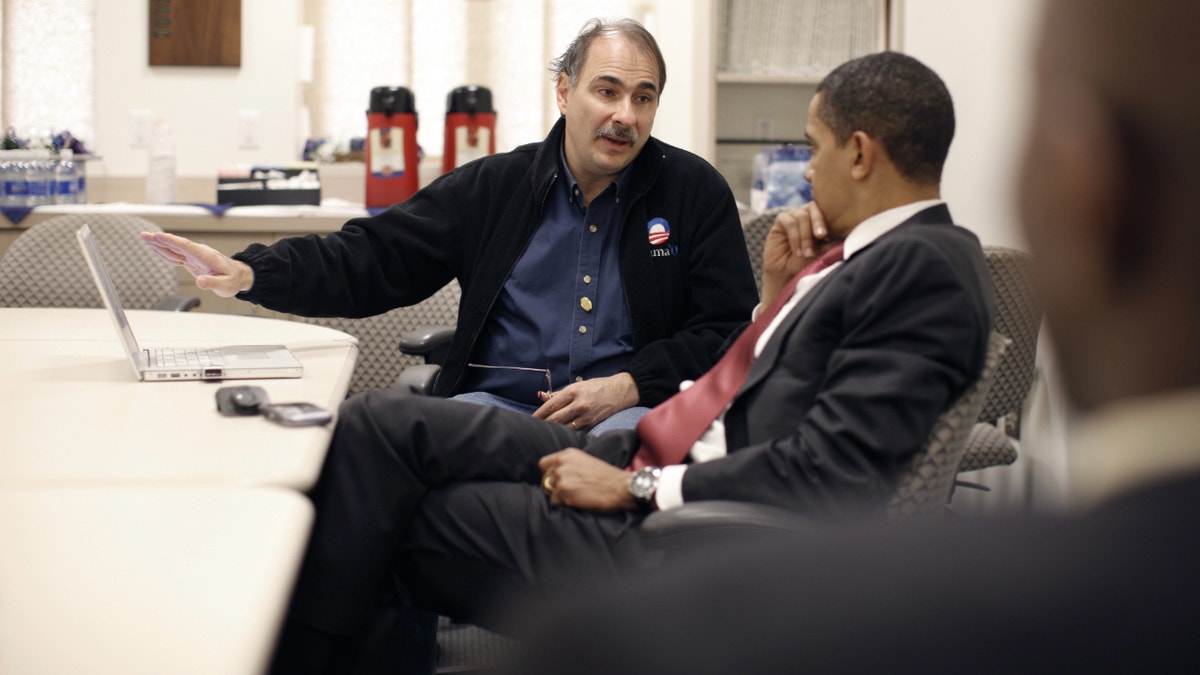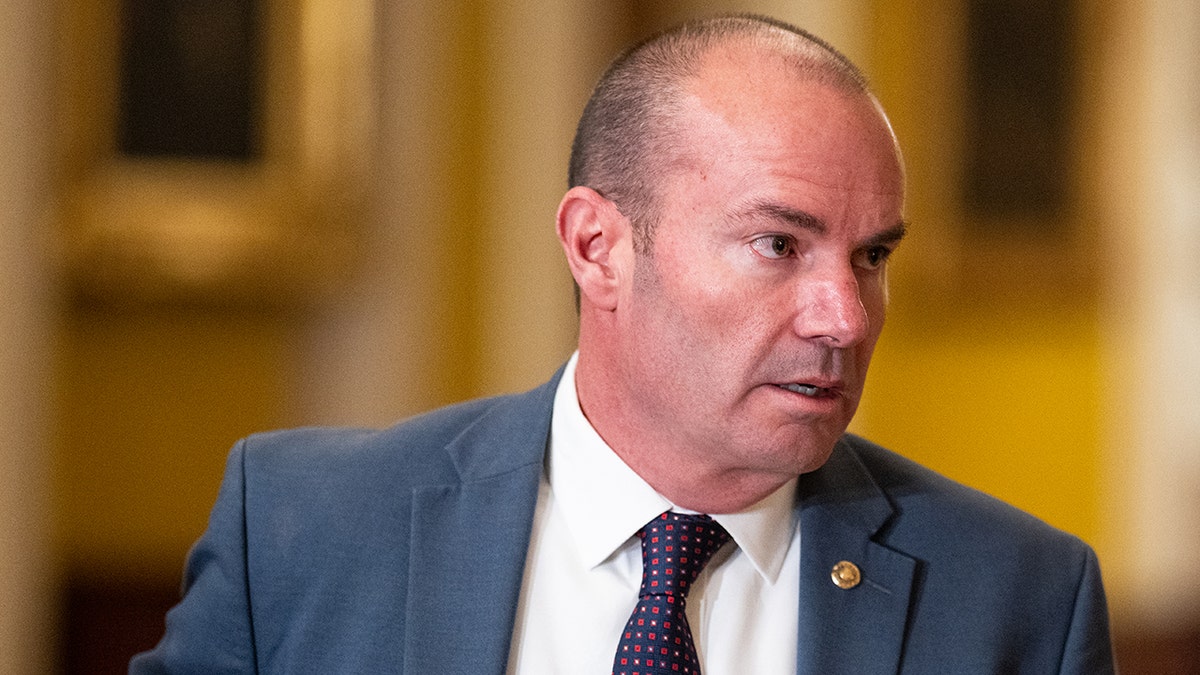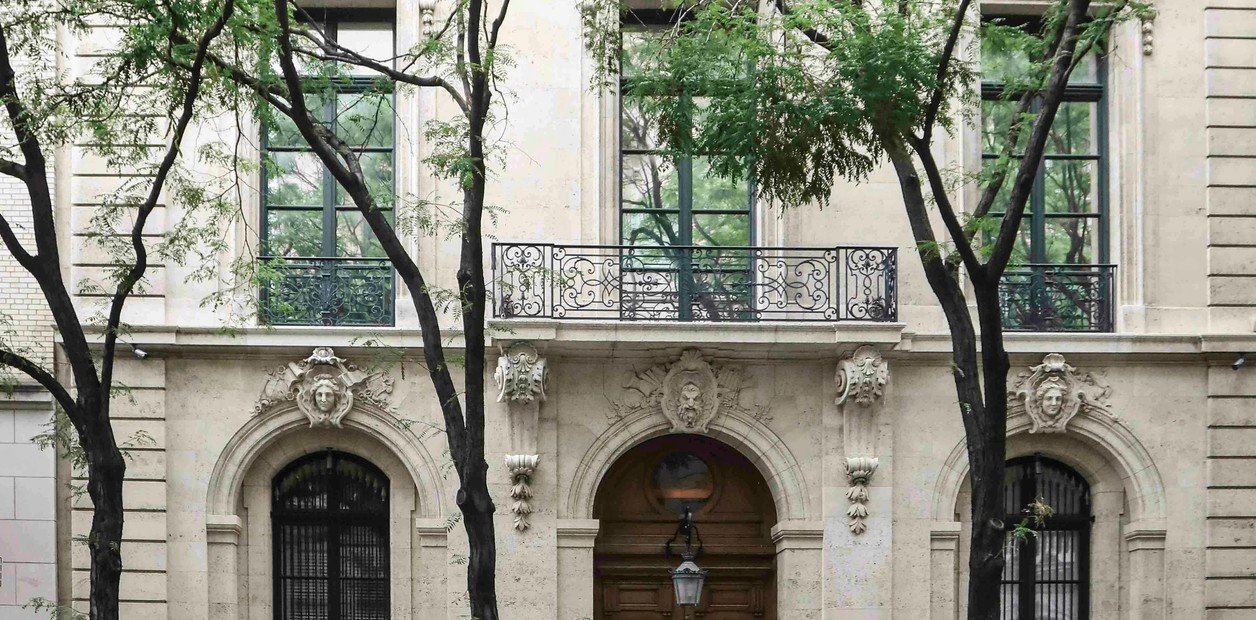INTERNACIONAL
Mamdani campaign dishes out millions to firm of key media strategist for Obama campaigns: ‘She’s the best’

NEWYou can now listen to Fox News articles!
FIRST ON FOX: The campaign of New York City’s Democratic socialist mayoral candidate Zohran Mamdani has dished out millions to the firm of a key media strategist that helped shape the media-buying strategy of former President Barack Obama’s campaigns.
Over the past few months, campaign finance records show the Mamdani team has disbursed over $3 million to the Los Angeles-based Debra Schommer Media Group for expenditures that were described as going toward television ads, TV production and digital advertising.
Schommer has more than 30 years of experience in the media planning and buying field, according to her website bio, and lists herself as a previous director of media planning and buying for AKPD Message and Media, a consulting firm started by Obama confidantes David Axelrod and David Plouffe.
Schommer’s website also touts her work managing and forming media strategies for political campaigns, including the presidential campaigns of Obama and former Transportation Secretary Pete Buttigieg, who unsuccessfully ran for president in 2020.
RESURFACED MAMDANI PHOTO SPARKS SOCIAL MEDIA FIRESTORM, OUTRAGE FROM KEY VOTING BLOC: ‘SHAMEFUL’
The campaign of New York City’s Democratic socialist mayoral candidate Zohran Mamdani has dished out millions to the firm of a key strategist who helped with Obama’s campaigns. (Getty)
«As the Director of Media Planning and Buying for David Axelrod, since the inception of Axelrod and Associates (which later formed AKPD Message and Media), Debra built the department, led, managed, and worked on media strategies for Democratic candidates – Local, State, and Presidential (including Obama and Buttigieg), Independent Expenditures, and Advocacy campaigns,» her bio reads.
«She made sure every dollar we spent counted,» Axelrod wrote in support of Schommer’s work. «She’s the best!»
Schommer’s archived bios from 2009-2015 on AKPD’s website listed her as the director of media planning/buying and later the vice president of media planning, describing her as «a seasoned and skilled expert» and saying she has an «impeccable reputation in the media community along with being known for her passion and commitment to politics.»
ADAMS REBUKES MAMDANI FOR ‘ROMANTICIZING’ SOCIALISM IN NYC MAYORAL CAMPAIGN

Democratic mayoral candidate Zohran Mamdani speaks at his primary election party, June 25, 2025, in New York. (AP Photo/Heather Khalifa)
In addition to Plouffe and Axelrod, an archived AKPD website says Mike Donilon, a decades-long advisor to former President Joe Biden and Democratic strategist, was a partner at the firm.
Reports from 2008 said AKPD had received over $2 million from the Obama campaigns since 2005 and played an instrumental role in marketing Obama to voters. AKPD would later make headlines the following year after it was revealed it was one of two firms «working on the $24 million in ads» selling the ObamaCare push.
«Mamdani and his team will throw millions at voters to run from his positions,» Targeted Victory Executive VP Matt Gorman told Fox News Digital. «Consultants can work wonders, but they’re not miracle workers. A communist is still a communist.»
In addition to Mamdani, a Fox News Digital review found that her firm played an instrumental role in crafting television ad buys for far-left «Squad» Reps. Jamaal Bowman and Cori Bush, who were both defeated last year during their Democratic primaries. Both ex-lawmakers were vocal about defunding the police, along with other radical proposals like reparations, and their campaigns dished out hundreds of thousands of dollars to Schommer’s firm, according to the FEC website.
Mamdani’s surge to the forefront of the political landscape has sparked divisions within the Democratic Party between moderates who have opposed his socialist platform and the progressive wing led by Democratic Rep. Alexandria Ocasio-Cortez, who endorsed Mamdani.
CLICK HERE TO GET THE FOX NEWS APP

Democratic presidential candidate Barack Obama huddles with David Axelrod before speaking to supporters in Erie, Pennsylvania, on April 18, 2008. (Getty)
CLICK HERE TO GET THE FOX NEWS APP
In the wake of Mamdani’s primary victory last month, the Democratic Socialists of America (DSA) highlighted that «this movement is bigger than one person, election, city, or organization.»
«We encourage all people inspired by the Zohran campaign to join their local DSA or YDSA chapter and get involved so we can continue to fight alongside Zohran and DSA elected officials across the country to create the future we all deserve,» they added in a statement.
Fast-forward to Wednesday, and DSA leaders are apparently mulling running primary challengers against Jeffries as well as other House Democrats whose districts are in New York City, including Reps. Ritchie Torres, Jerry Nadler, Dan Goldman and Yvette Clarke.
However, Democratic strategist Andre Richardson, a top Jeffries political advisor, pushed back hard and told CNN that they will «teach» Mamdani’s «Team Gentrification» allies «a painful lesson on June 23, 2026.»
Fox News Digital reached out Axelrod, Schommer, and the Mamdani campaign.
Fox News’ Paul Steinhauser contributed to this report.
INTERNACIONAL
Violent attack reignites BOWSER Act debate as Trump floats federal takeover of DC

NEWYou can now listen to Fox News articles!
A Senate Republican renewed his push to federalize Washington, D.C., following an attack on a former Department of Government Efficiency (DOGE) staffer and President Donald Trump’s threat to put the District under federal control.
Sen. Mike Lee, R-Utah, has long called for control of Washington to fall under Congress, going so far as to introduce the Bringing Oversight to Washington and Safety to Every Resident (BOWSER) Act, named after D.C. Mayor Muriel Bowser, in an effort to combat crime in the District.
REPUBLICAN BILL WOULD PUT ‘ANARCHIST JURISDICTIONS’ ON NOTICE, THREATEN FEDERAL FUNDING
President Donald Trump speaks to the media as he arrives at Glasgow Prestwick Airport on July 25, 2025, in Prestwick, Scotland. (Andrew Harnik/Getty Images)
The bill, which Lee introduced alongside Rep. Andy Ogles, R-Tenn., has not made it out of committee since being dropped in February. But Trump’s highlight of an attack against former DOGE staffer Edward Coristine, also known as «Big Balls,» has resurrected the discussion.
«The Constitution already federalizes D.C.,» Lee said on X. «We just need Congress to do its job — and reassert its lawmaking power over our nation’s capital city. My bill, the BOWSER Act, would do that.»
Fox News Digital reached out to Lee for further comment.
SENATE REPUBLICANS LAUNCH CRACKDOWN ON DC PERMITTING ILLEGAL IMMIGRANTS, NONCITIZENS TO VOTE IN ELECTIONS

Sen. Mike Lee, R-Utah., arrives for the Senate Republicans leadership election in the Capitol on Nov. 13, 2024. (Bill Clark/CQ-Roll Call, Inc via Getty Images)
Lee’s bill would effectively repeal the District of Columbia Home Rule Act, a law passed in the 1970s that established a city council and mayor and reduced the amount of oversight that Congress has over the city and its affairs.
But calls have grown by lawmakers over the years to increase Congress’ oversight of the city, largely centered on concerns over increased crime and criticisms of attempts to rewrite the District’s criminal code.
And Trump jumped into the discourse, too, threatening that if «D.C. doesn’t get its act together, and quickly, we will have no choice but to take Federal control of the City.»
«Perhaps it should have been done a long time ago, then this incredible young man, and so many others, would not have had to go through the horrors of Violent Crime,» Trump said on his social media platform, Truth Social. «If this continues, I am going to exert my powers, and FEDERALIZE this City.»
Fox News reached out to Bowser’s office for comment but did not immediately hear back.
‘SHOULD HAVE BEEN PREPARED’: GOP SENATORS FIGHT FOR UNIFIED MESSAGE ON TRUMP’S ‘BIG, BEAUTIFUL BILL’

DC Mayor Muriel Bowser speaks at a news conference on Capitol Hill in Washington on March 10, 2025. (AP Photo/Ben Curtis)
Zack Smith, a senior legal fellow at The Heritage Foundation and a former prosecutor, told Fox News Digital that in the past, the D.C. council has pushed «policies that have made it much more difficult for law enforcement, for prosecutors, to do their jobs and keep citizens safe.»
Bowser and the D.C. Council have, for several years, worked to update the District’s criminal code. However, changes to the code that would have severely lowered sentencing for a variety of crimes that were at first vetoed by Bowser were on the precipice of becoming law before Congress and former President Joe Biden overrode the reforms.
CLICK HERE TO GET THE FOX NEWS APP
Smith noted that Congress still has the authority to legislate the District, meaning that lawmakers and the federal government are «still the backstop,» and that both Trump and Lee were right to call for a «reevaluation of the District’s status.»
«That’s why Congress was able to step in and overturn that proposed radical rewrite of the Criminal Code,» he said. «And so what the BOWSER Act would actually do, if it repeals home rule, it would essentially change the way the local D.C. government functions. It might involve Congress and the Federal Government taking a more direct role.»
«I think there is broad and in some ways bipartisan consensus that the current system in D.C. is not working as it should,» he continued.
politics,doge,donald trump
INTERNACIONAL
Vicente Palermo y el desafío existencial de sus nuevos relatos

El matadero municipal se extendía en un inmenso rectángulo a las afueras de la diminuta ciudad. Sus muros le eran familiares porque acostumbraba aproximarse a ellos en sus caminatas diarias. Fue a la sombra de los mismos que Auguste Menard tomó ese día su decisión: dejaría de ser un contemporáneo. Radicalmente enfadado con el presente, el futuro le atraía todavía menos, en su estólida previsibilidad. No le quedaba, entonces, sino sumergirse en el pasado. No se trataba de viajar por el tiempo, odiaba la ciencia ficción. Dejar de ser un contemporáneo consistiría en construir las condiciones de su vida en un pasado o, en otras palabras, en forjarse un nuevo presente.
Una dura tarea. Debía lograr la proeza de que su mente se tornara plenamente contemporánea al pasado elegido, para que este se constituyera en su nuevo presente. Debería empezar forzosamente por decidir el punto en el sistema de coordenadas espacio-tiempo. Lazos de familia habían hecho que él dominara con soltura la lengua francesa; fundadas razones lo llevaron a escoger los años inmediatamente posteriores a la Comuna de París como su nuevo presente (cuando el levantamiento aplastado no era, todavía, un compendio de ingenuidades sino la raíz del futuro). De esa manera, Menard zafaba también de uno de los principales escollos percibidos: recrear las percepciones pictóricas europeas anteriores a Francisco de Goya estaba más allá de sus capacidades. Además, eso le permitiría disfrutar de los excelentes vinos españoles, del rioja sobre todo, como el Marques de Riscal, descubiertos en la Exposición de París de 1871 (sí, siempre había llamado su atención esa fecha, su proximidad con Thiers y los comuneros).
Pero no lo haría en el escenario de la Comuna sino en las ricas tierras viñateras de Bordeaux, lejos también de esta ciudad, más cerca de Pau, donde su padre, un austríaco que había consagrado su vida a los negocios, había edificado el inmenso solar en el que siempre había vivido.

De sus contados amigos se despidió diciéndoles que, puesto que habría de olvidarlos, no los extrañaría. Perplejos, se resistieron vacilantes al adiós.
Precisaba una mucama capaz de fungir como su único contacto con el mundo exterior. Examinó varias candidatas, pero las descartó porque todas hablaban con el fuerte acento meridional que había terminado de contaminar la región apenas 50 años atrás, obra de silenciosas migraciones internas. Cuando se presentó una muda, que además parecía en extremo despierta, Menard no dudó en contratarla.
Eliminó todos los vestigios de modernidad aún presentes en el interior de su casa. Reemplazó viejas fotografías por daguerrotipos, pistolas vetustas por trabucos arcaicos, un Pissarro de 1891 por una panoplia, y el acostumbrado artefacto en que se sentaba diariamente por una letrina. Un nuevo tipo de salero diseñado a principios del siglo XX, y que mucho apreciaba, conoció la misma suerte ingrata que la radio a galena. Se desprendió de su guarda ropas, por entero, y lo reemplazó por un puñado de indumentarias antiguas que la diligente criada silenciosa supo conseguir. Una vez hecho todo esto y mucho más, advirtió lo que ya sabía de antemano: había cumplido con una porción ínfima de su trabajo. Aquello que ahora le esperaba era lo más arduo: procesos mentales cuya complejidad intuía pero que nunca había recorrido.
Supo desde el comienzo que habría de resignarse a una fuerte incoherencia, porque ¿cómo construir las condiciones de su nuevo presente subjetivo sin apelar a materiales de su presente biológico, el único que había adquirido al nacer? A menos que su inmersión en el pasado significara un drástico embrutecimiento, cosa a la que no estaba dispuesto a resignarse, habría de hacer transacciones. Si quería, digamos, leer cotidianamente las ediciones de Le Figaro desde 1871, precisaría valerse de medios técnicos inexistentes en esa fecha. Si deseaba mantener a raya las enfermedades que asediaban su precaria salud física, debía contar con medicamentos que se crearían sólo bastante después de los tiempos de la guerra franco prusiana. Menard salió al cruce de esta fuerte impugnación diciéndose a sí mismo que, al fin y al cabo, los seres humanos se movían en una incoherencia semejante ya que vivían permanentemente, aunque por lo general sin saberlo, en el pasado y el presente al mismo tiempo. Lo que más le dolió fue quemar una parte sustancial de su biblioteca, que quedó reducida a unas decenas de libros, malamente incrementadas por unos cuántos más que pudo adquirir a intrigados libreros. Incineró inclusive ediciones recientes de autores antiguos, en la esperanza de hacer más rigurosa su recomposición mental.

Pero le faltaba sortear un nuevo obstáculo; sabía él que, quien vive en el presente, tiene por delante un futuro abierto, y su voluntad puede incidir en el curso de los acontecimientos. Esto no sucede con quien vive en el pasado, ya que sus futuros en verdad no lo son, ya están determinados, por definición no dispone de opciones a su arbitrio. ¿Se trataría, el suyo, entonces, de un vivir en un pseudo presente, un presente ajeno a la condición humana? A esta poderosa refutación de su emprendimiento, Menard se respondió que esa libertad está a disposición de apenas una por millón, quizás por cien millones, de personas, los hombres extraordinarios, y él no pretendía para sí sino el pasado y el futuro de un hombre común, ya que no se sentía otra cosa. No pretendía tener la menor influencia sobre los hechos futuros en circunstancia alguna, ni traspasar el límite de una sabiduría moral estrictamente contemplativa. Su objeción, por tanto, estaba salvada.
Con todo, la muralla más formidable que se interponía entre Menard y su nuevo presente, era otra: la persistencia soberana del recuerdo. Que los hombres sabían olvidar era una constatación más bien deprimente en todo tiempo y lugar, pero él no precisaba de esa forma de olvido, sino de una mucho más radical. No precisaba borrar la memoria de los hechos, precisaba apagar los propios hechos. No necesitaba eliminar el recuerdo de las atrocidades de la batalla de Solferino, sino a la batalla misma.
Pero el aprendizaje del olvido no habría de consistir meramente en un ejercicio lineal, destinado a devorar una larga sucesión de hechos, sino también en un apagar de las huellas que los acontecimientos habían impreso en la percepción y el significado de acontecimientos anteriores. Era para Menard inaceptable sentar sus reales en 1871 y mantener una lectura de la Revolucion Francesa influida por las grandes contribuciones historiográficas desde fines del siglo XIX. O juzgar los primeros pasos del colonialismo europeo en África a la luz de la confrontación interinperialista de la Gran Guerra.

Recorrer ese camino resultó, sin embargo, menos penoso de lo que había sospechado. A medida en que más se enfrascaba en su nuevo mundo más eficientemente funcionaba el aparato cognitivo que destruía secuencias enteras de acontecimientos y las reemplazaba por otras; poco a poco, el olvido como fatigoso ejercicio volitivo fue dando paso a una práctica más impensada, que al cabo descansó completamente en esferas no conscientes de su campo mental. Cuando esto ocurrió, y el avance del olvido se tornó incontenible, ya no percibia, naturalmente, lo lejos que había llegado. Se había olvidado de olvidar, puesto que su mente olvidaba sola, y todo lo que había olvidado descansaba, más bien yacía en estratos abisales de su cerebro, desde los que no podía emitir ni siquiera la señal del esfuerzo atroz realizado para hundirlo en ellos. Jugó a su favor, en lo que se refiere a su vida personal, que ésta, sostenida en una sólida fortuna familiar, estaba casi completamente desprovista de episodios que pudieran tener algún interés ni para él mismo; personalmente no tenia nada que olvidar, en otras palabras.
Cuando su nuevo presente entró en régimen, no persistían en el talud su mente ni los vestigios de su mundo anterior y, blindado por un aislamiento sin fisuras, disfrutó algunos años de paz. Decididamente encontraba ese presente más confortable, aunque, víctima de su propio éxito, Menard ya no podía compararlo con ningún otro. Esa precaria felicidad no podía durar por siempre, porque se edificaba en base a una paradoja: la reducción de su vida privada a una reclusión absoluta amplificaba el impacto de las noticias del mundo exterior del pasado-presente, que le llegaban por medio de los periódicos de época y algunas otras fuentes que su perspicaz servidora supo conseguir, o inventar.
Un día se descubrió a sí mismo vomitando; tras Cuba y Filipinas, se le antojaba incontenible el ascenso de los Estados Unidos en el concierto internacional y con ello inexorable la extinción del mundo del espíritu en el que había creído vivir. Fue un punto de inflexión; la atmósfera decadente de la Belle Epoque, y la creciente degradación de la familia imperial rusa – en la que Menard había cifrado confusas esperanzas –, completaron un cuadro que se llenaba cada vez más de hechos abrumadores. Lo invadió una repugnancia que lo deprimió profundamente. Estuvo meses envuelto en un recóndito desasosiego, arrojado a un laberinto del que, finalmente, encontró la salida saltando sus paredes.
Se daba cuenta de que jamás en su vida había tomado una decisión tan importante. Ésta lo impulsaba hacia un mundo desconocido, y para llegar a él, habría de internarse por senderos nunca pisados. Dejaría de ser un contemporáneo.
INTERNACIONAL
Una mirada al interior de la guarida de Jeffrey Epstein en Manhattan

Mansión
Registros

 CHIMENTOS1 día ago
CHIMENTOS1 día agoMalas noticias para Wanda Nara: por qué la bajaron misteriosamente de MasterChef: «No va a salir este año»

 DEPORTE1 día ago
DEPORTE1 día agoEl Como de Fàbregas, el nuevo rico de Italia

 POLITICA1 día ago
POLITICA1 día agoSebastián Pareja justificó el armado de listas de LLA en la Provincia: “El desafío era dar una opción diferencial”


























